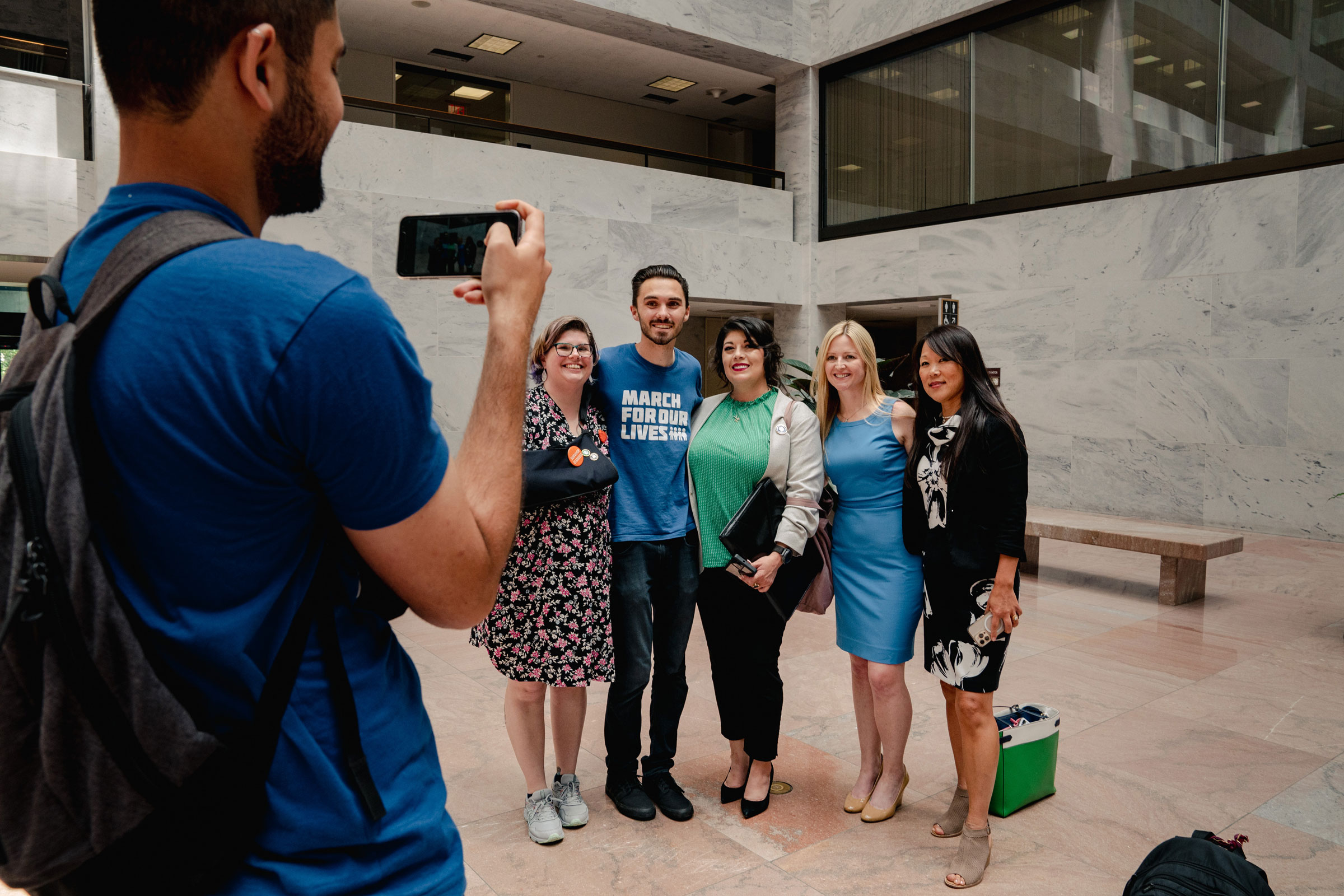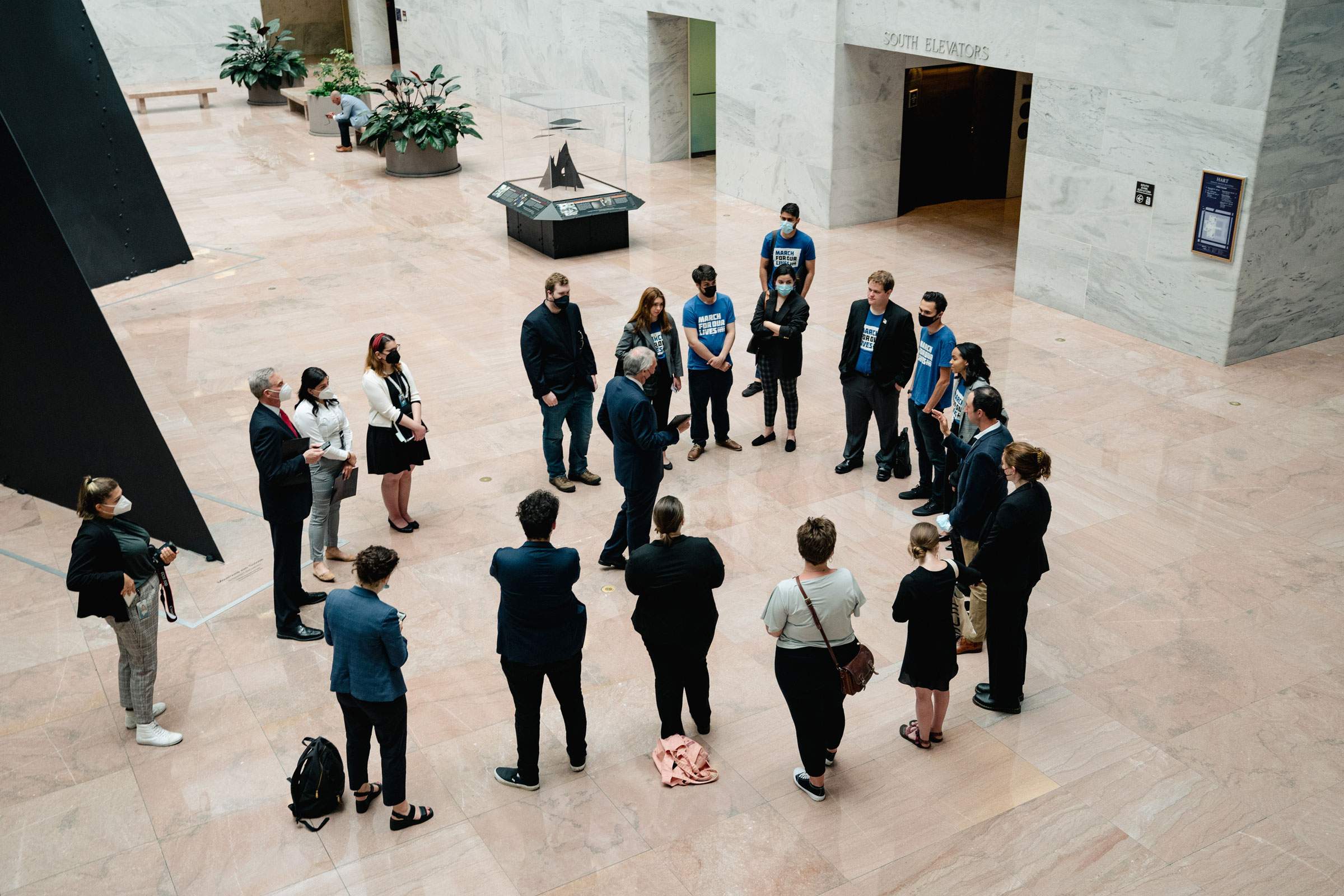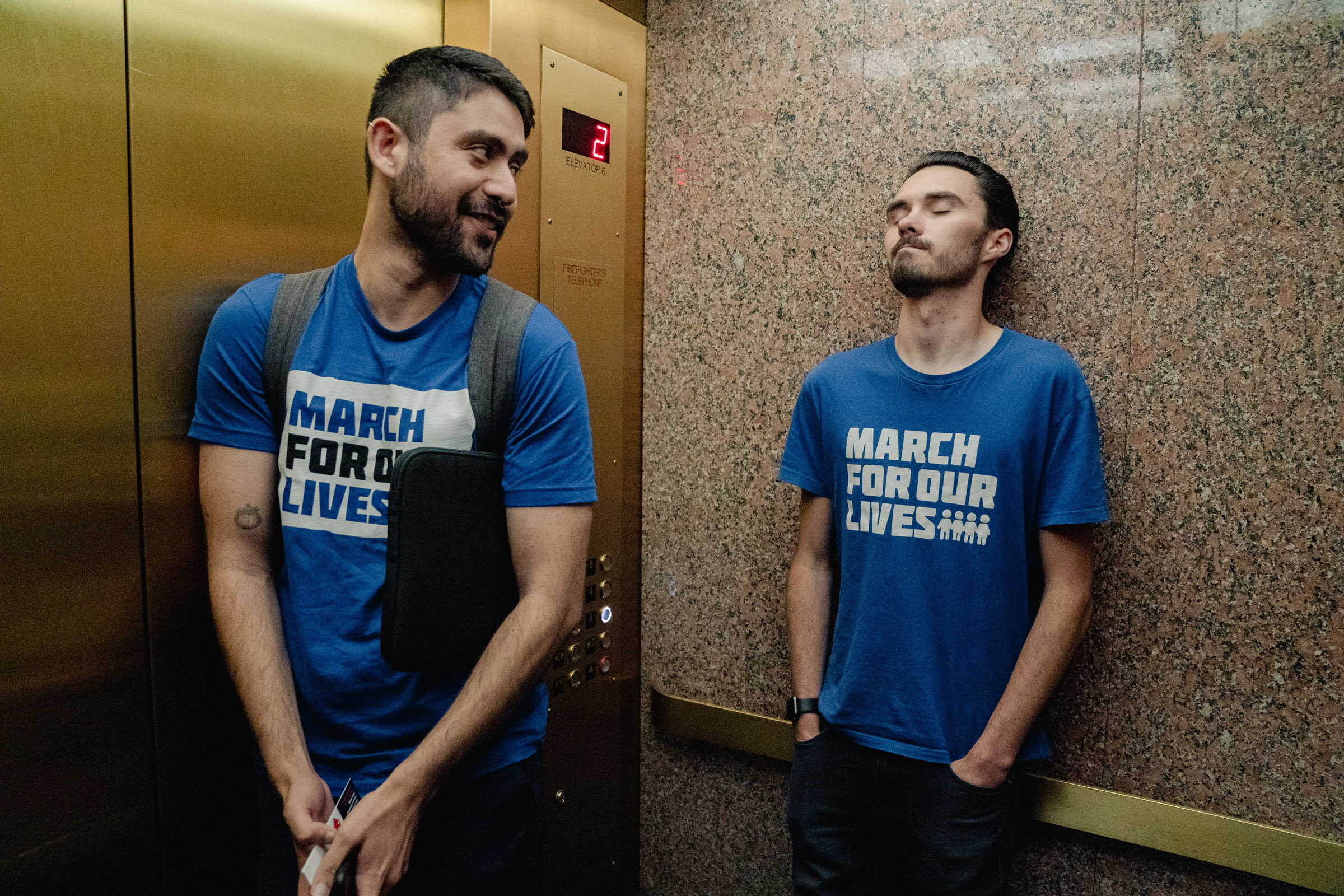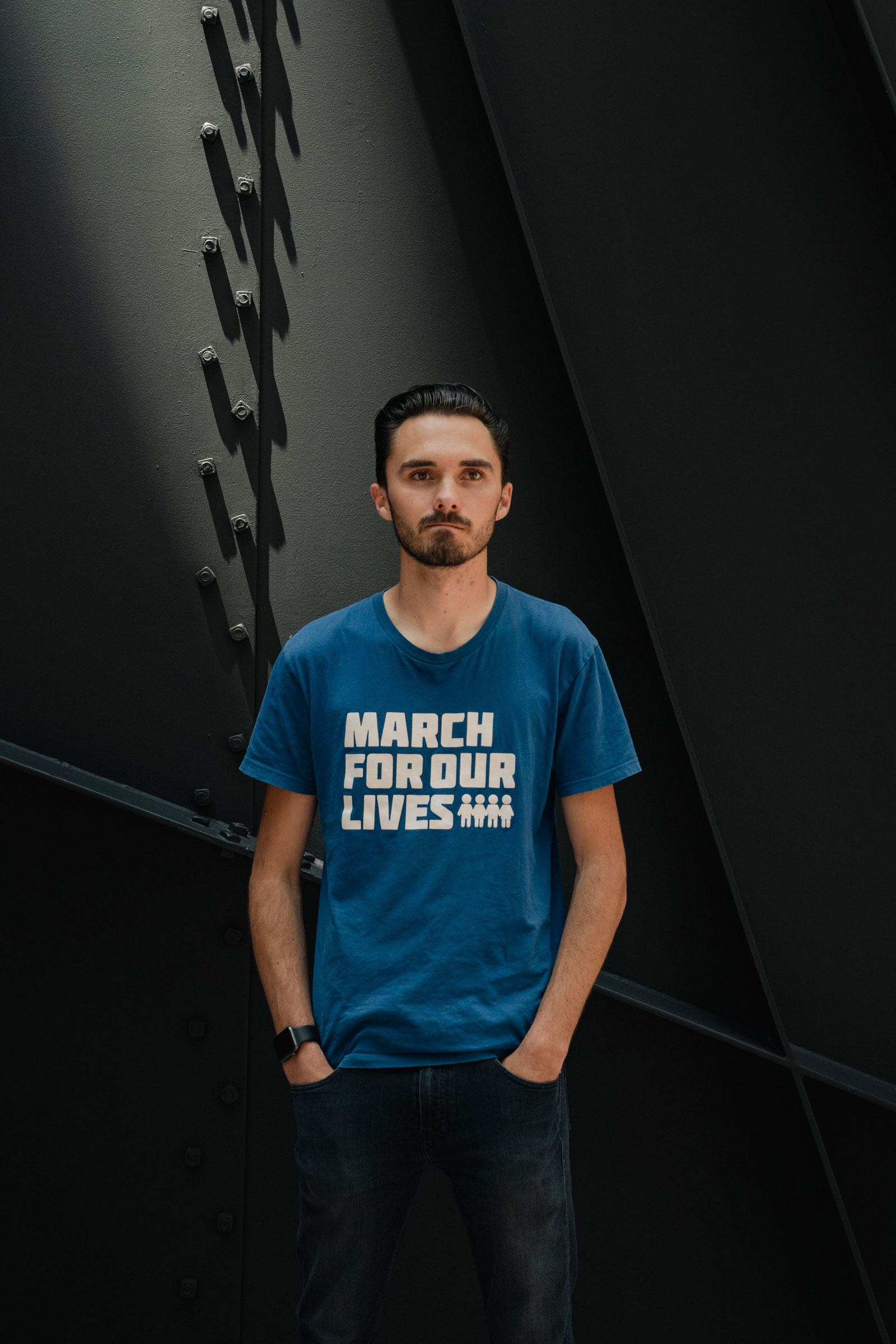The Education of David Hogg
[ad_1]
A lot has changed since I first met David Hogg in 2018. He has a beard now, and a girlfriend. He’s about to be a senior at Harvard, studying the history of conservative political movements. His face has lost what little roundness it had. There’s a new President, and a new party in control of Congress. He’s in therapy these days.
At the same time, so much has not changed. In the four years since Hogg and his friends in Parkland, Fla., launched the March for Our Lives movement, there have been at least 611 incidents of gunfire on school grounds, according to Everytown for Gun Safety. Firearm-related deaths have overtaken auto accidents as the leading cause of death for children in the United States.
“I’m sick and tired of us giving ourselves pats on the back for trying,” Hogg told me on the morning of June 9, a little over two weeks after a gunman killed 19 children and two teachers at an elementary school in Uvalde, Texas, and two days before the March for Our Lives movement held rallies around the country on June 11. “Objectively we’ve been failing.”
That may finally change, now that 20 U.S. Senators have announced a bipartisan framework to increase background checks for gun buyers under 21, provide funding for states to enact red-flag laws, and close the so-called “boyfriend loophole” to disarm domestic abusers, alongside more funding for mental health and school safety. While modest, the framework, announced the day after thousands marched to end gun violence in March for Our Lives events around the country, may have enough Republican support to pass the Senate, making it the most significant step towards addressing gun violence on the federal level in decades.
The 17-year old David Hogg would have hated this compromise, which falls far short of what he and other gun-violence activists have demanded, and is much narrower than the sweeping reforms that passed the House. The older, wiser David Hogg, now 22, says the bill is less than he’d hoped for, but more than he’d expected. “If we pass this right now as it’s described, it’s been more than has ever been done in my lifetime on the federal level,” he says. “And that’s progress.”
Hogg didn’t have much to do with crafting the bipartisan compromise. But his own shifting approach to activism mirrors the evolution of the movement he helps lead. Back in 2018, Hogg had told me he considered Florida Republican Rick Scott “the devil,” and called the battle for gun safety a contest of “kids versus evil.” As a fiery teenager, he was visibly enraged at Republicans. Now, he is determined to talk to them.
“I’ve gotta get 10 votes,” Hogg told me last week, as we hustled through the Hart building. “I can’t be picky.”

David Hogg takes group photos with his fellow survivors and activists as they lobby to push for Congress to enact tougher gun control measures at the Hart Senate Office Building in Washington, D.C., on Tuesday, June 9, 2022.
Shuran Huang for TIME
In a meeting with Senator Bob Menendez, a New Jersey Democrat who supports more restrictive gun laws, glimpses of the old David Hogg peeked through. “Mental illness is a bulls–t talking point,” he told Menendez, adding that racism is also a root cause of gun violence. Menendez nodded serenely. Yet he also asked if Senator Menendez had strong relationships with any Republicans, and whether the senator could put in a good word for him. Menendez said he would think on it.
Out in the Hart atrium, Hogg looked up at the massive Alexander Calder sculpture, “Mountains and Clouds.” He was awaiting a meeting with Senator Ed Markey, another safe Democratic vote. His staff had arranged meetings with staffers for Senators Pat Toomey, Marco Rubio, and Lindsey Graham, part of his effort to get Senate Republicans on board with new gun-violence prevention measures. But those meetings had been cancelled, and it was unclear whether they would be rescheduled.
Hogg knows he has one key political advantage as an activist. Studying the history of conservative movements has taught him the power of endurance as a compounding political force. “We have the most valuable thing in politics besides a boatload of money, which is time,” Hogg says. “We’re going to outlive almost everyone else in this building.”

David Hogg and his fellow activists meet with Senator Ed Markey (D-MA) at the Hart Senate Office Building in Washington, D.C., on Tuesday, June 9, 2022.
Shuran Huang for TIME
Over a bowl of beef pho at a Vietnamese place near Capitol Hill, I asked Hogg whether the youth movement to end gun violence has been a success. “Objectively, if you look at the number of gun deaths, no. It hasn’t,” he told me. “And it’s hard to reckon with that, because we have tried so hard.”
The year after the massacre in Parkland, there were at least 31 shootings at schools, according to a CNN estimate. Four years later, gun violence in schools is reaching new highs. There were 136 incidents of gun violence at school in the first half of the 2021-2022 school year, quadruple the previous average for that period, according to a report from Everytown for Gun Safety. It was the deadliest stretch since the group began tracking guns in school.
Read More: The School Shooting Generation Has Had Enough.
Hogg is probably the most recognizable face of March for Our Lives, and one of few original Parkland organizers still actively leading the movement. His friend and co-founder Jaclyn Corin is still involved—she recently appeared on The Tonight Show Starring Jimmy Fallon to promote the June 11 marches—but most of their peers have slowly drifted away. They’ve burned out, or struggled with PTSD, or simply decided that they’d rather be college students. “It’s exhausting for kids,” Hogg says. As the Parkland generation moves on, new youth gun-violence advocates from other communities have taken their place, which has helped to diversify the movement and expand its focus beyond school shootings to gun violence more broadly.
Studying conservative movement-building has helped Hogg realize that the long game takes even longer than he thought. In 2018, many of his peers believed gun violence was a problem that could be addressed with strong Democratic turnout in the 2018 congressional midterms and a victory over Donald Trump in 2020. Both of those things happened, and the push for stricter gun laws is still stalled.
And as the years go by without meaningful action, the young people who started the movement aren’t so young anymore. “That’s one of the problems that March for Our Lives faces, honestly,” Hogg says, loading up his pho with sriracha. “[Moms Demand Action founder] Shannon Watts is always going to be a mom; we’re not always going to be kids.”

David Hogg closes his eyes for short break as he listens to his press secretary and brand strategist, Noah Lumbantobing, before meeting Senator Ed Markey (D-MA) at the Hart Senate Office Building in Washington, D.C., on Tuesday, June 9, 2022.
Shuran Huang for TIME
Hogg keeps a Google Doc where he lists everything he’s learned from the mistakes he made while starting a massive social movement at 17. He opens it up and starts to read them out loud. By the time he’s done, the pho has gone cold.
The lessons he’s jotted down sound like leadership mantras for executives two or three times his age. Thing big, start small. Beta test, then fail. Focus on what happens the day after the march. Ask yourself: does this make someone on staff happy, or does this advance our goal? Don’t let a fox in the henhouse.
There’s also: “Adults who come offering help cannot be trusted.”
More from TIME
Most importantly, Hogg has “become a lot more pragmatic,” he says. He used to be uncompromising. “But we’ve gotta pass whatever we can, even if it just saves one life.”
To that end, Hogg has tried to expand the March for Our Lives movement to include more gun owners, more law enforcement supporters, and more veterans. He’s appeared on former Republican congressman Joe Walsh’s podcast to try to find common ground on the issue.
“I want to state unequivocally that I am not anti-gun,” Hogg wrote in an op-ed on FoxNews.com. “In fact, the movement I helped to start has been pro-Second Amendment from day one.” The goal now, he says, is to build a movement against gun violence that transcends party lines. That’s why he’s so eager to accept the bipartisan compromise: “It’s a step, it’s progress,” he says. “It’s not the final step, but it’s a good first step.”
Part of this pivot is informed by his academic focus. Hogg has learned that conservatives are more disciplined and proactive than liberals, and they tend to stay focused on a single goal rather than try to do everything at once. He and his fellow liberal activists too often find themselves reacting to outrages, he says, “timing the market” rather than building new political structures from the ground up. He cites conservative organizations like the American Legislative Exchange Council, the Federalist Society, and the Heritage Foundation. “Liberals are organized the way that a bunch of six-year olds doing a group project together with a bunch of crayons are,” he says. “Conservatives are organized like SEAL Team Six.”
Hogg now thinks that curbing gun violence is going to require a multi-year, three-pronged strategy: focusing on state-level activism; expanding the movement to include responsible gun owners and moderate Republicans; and changing the culture around gun ownership in the United States.

David Hogg stands for a portrait inside the Hart Senate Office Building in Washington, D.C., on Tuesday, June 9, 2022.
Shuran Huang for TIME
On this last point, Hogg likes to point to the success of the fight against tobacco. Cigarettes aren’t outlawed anywhere in the United States, but they’re regulated and taxed aggressively. More importantly, they’ve declined in popularity; young people see smoking as risky and many prefer vaping instead. He wants to attack the reasons someone may pick up a gun the same way health advocates once went after the reasons people smoke cigarettes.
Read More: The Parkland Student Activists Are On The 2018 TIME 100.
“If we’re successful, future kids will look at guns the way we look at cigarettes—not as something cool and sexy, but as something that’s dangerous and gross,” he says. “Because death is gross and murder is gross.”
Four years ago, it seemed like the passion of the Parkland kids might be enough to move the needle. So many shootings later, Hogg knows that this work is far bigger than one school, one massacre, one march. Hope is cheap; determination is what lasts.
“We have to get some wins under our belt here for the movement itself, because people are exhausted and hopeless,” he says, getting into the car with the security detail that now follows him around most of the time. “I’m not powered by hope. I’m powered by the fact that I have no other choice.”
More Must-Read Stories From TIME
[ad_2]
Source link
